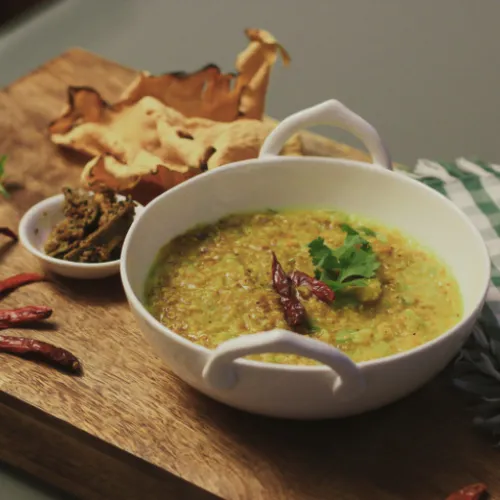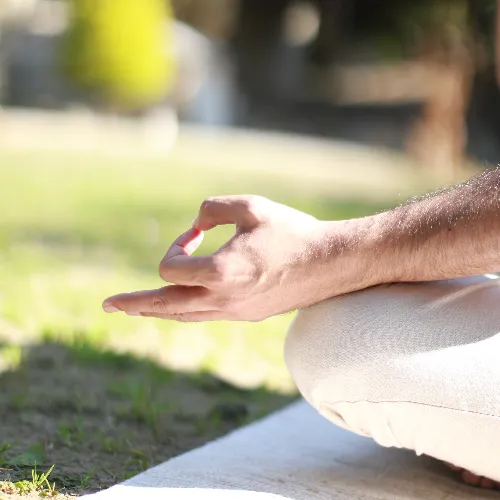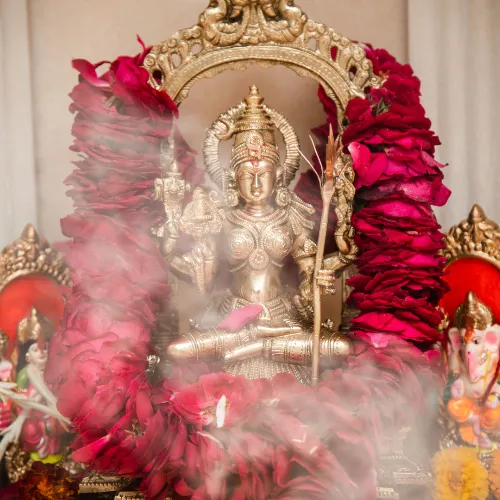


Eating the right foods for your doshas is just one aspect of Ayurvedic lifestyle and self-care. That said, foods can be used synergistically with daily and seasonal routines to keep you balanced throughout the day, seasons and your entire life!
If Vata (air and ether) is your most prominent dosha, what should you be eating to stay balanced?
Eating a ton of bitter, astringent and spicy foods can aggravate Vata. You can balance this out with sweet, sour, and salty foods. Warm and moist foods that are super easy to digest are also good for balancing Vata. Dairy works well too, especially when it’s been warmed up.
This includes steamed or boiled starchy veggies such as rice, wheat, poultry, seafood, eggs, broccoli, cauliflower, zucchini, and leafy greens, sour and ripe fruits such as oranges, grapes, bananas and avocado, and mild to moderate spices like cumin, coriander, ginger, cardamom, cinnamon, fennel, mustard, and black pepper.
Oils can also be super balancing, including ghee, coconut oil, and olive oil. Cooking with these oils can be super helpful for balancing Vata.
Nourishing and warming soups, casseroles, and dahls are perfect examples to balance Vata, especially when the temperature drops. Warm cereals like oatmeal are also a good move.
For drinks, sip on warm milk and herbal teas such as chamomile, ginger, fennel, licorice, and lemon. Warm drinks tend to be a better option than cold drinks.
And here’s what to limit or avoid to keep Vata balanced - beans, raw veggies, barley, millet, corn, buckwheat, rye, light fruits like apple and pear, dried fruits, and cabbage.
When Vata is unbalanced, it’s super common to struggle with constipation, digestive problems, stomach cramps, anxiety, viral infections, weight loss, and sleep problems. You can also find yourself craving warmth and feeling dehydrated.
If your dominant dosha type is Pitta (fire and water), what should you be eating to stay balanced?
It’s super hard to keep Pitta balanced if you’re eating a ton of spicy, pungent, and sour foods. Fried foods can also be a major culprit, along with salty and fermented foods.
Cooling foods are great for balancing Pitta and you can also go for heavy, dry, bitter, astringent, and sweet foods. Hot foods are best avoided as they aggravate Pitta.
Some good choices include: raw veggies or ones that have been steamed or boiled - particularly asparagus, cucumber, zucchini, and okra. Sweet fruits, small amounts of dairy (but not too much as milk, butter, and ghee can aggravate Pitta), grains such as rice, wheat, barley, rice, and oats, poultry, coconut and olive oil. Mild spices such as cardamom, coriander, turmeric, cloves, and cumin. Cooling herbs and spices such as cilantro and saffron. For drinks, go for herbal teas such as fennel, peppermint, chamomile, licorice or spearmint.
Pitta benefits from regular meals. Try to space your meals out evenly throughout the day.
Foods to cut back on include tomatoes, carrots, hot/spicy peppers, beets, eggplant, onions, garlic, radishes, some grains, including rye and millet, and sour fruits such as berries.
When Pitta is unbalanced, it’s super likely that you’ll feel super aggressive and irritable. Physical signs of a Pitta imbalance can include diarrhea, feeling hungry all the time, struggling with bacterial infections and chronic heartburn.
When Kapha is your dominant dosha, what should you eat to keep it balanced?
Eating a lot of food of any type can easily unbalance Kapha. Heavy, rich foods are also a super common culprit for upsetting Kapha, along with sweet, sour and salty foods.
You can rebalance with bitter and astringent foods and ones that are light, warm and low-fat. This can include: boiled or steamed vegetables, light fruits such as apple or pear, raw vegetables, a small amount of fat-free dairy such as buttermilk, grains such as rye, millet, oats, barley, buckwheat, and corn, poultry and seafood, eggs and beans. Most spices such as paprika, garlic, basil, and allspice are okay. Honey for sweetening. For drinks, go for herbal teas such as raspberry, ginger, and peppermint.
Kapha also benefits from having a bigger meal around lunchtime and a lighter evening meal. Ideally, you want to have at least a 3-hour window between eating and bedtime. This gives plenty of time for your food to be digested before you go to bed. Kapha is strongly linked to digestion and metabolism so it’s hugely important to do this.
Foods to limit include nuts, dairy, red meat, and most oils.
Feeling physically and emotionally lethargic and stagnated is super common when Kapha is unbalanced. It’s also very likely that you’ll crave warm and spicy foods and drinks.
Physical signs of an imbalance can include constipation and sluggish bowels. Procrastination and struggling to get things done. Chronic yeast infections. Retaining water and bloating. Weight gain and sleeping a lot.
Learn more about Ayurveda and Ayurvedic Self-Care practices in the upcoming course with Justin Lemos, PhD, on Sattva Connect. Stay tuned!
Sattva Connect members may also listen to the various talks on Ayurveda through the platform + receive tips that are beneficial to leading a yogic lifestyle.


























































































